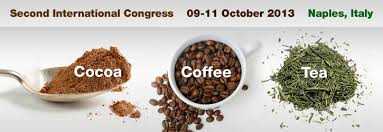Ongo E.1,2, Antonelli A.3, Montevecchi G.4, Sberveglieri V.3, Sevilla III F.2 1Industrial Technology Development Institute, DOST,Gen. Santos Ave., Bicutan,Taguig,1631 Philippines 2University of Santo Tomas, Graduate School, Espana Blvd., Sampaloc, Manila, 1008 Philippines 3Dipartimento di Scienze Agrarie e degli Alimenti, Universitá di Modena e Reggio Emilia, Via G. Amendola 2, 42122 Reggio Emilia, Italy 4Centro di Ricerca Interdipartimentale per il Miglioramento e la Valorizzazione delle Risorse Biologiche Agro-Alimentari BIOGEST-SITEIA, Università degli Studi di Modena e Reggio Emilia, c/o Via G. Amendola 2 (Padiglione Besta), 42122 Reggio Emilia, Italy E-mail: eme_ongo@yahoo.com Civet coffee is recognized as one of the top most expensive coffee in the world due to its unique taste and aroma [1]. It is produced only in few countries including Philippines.The increasing popularity of civet coffee and its limited annual production may lead to the occurrence of adulterated and fraudulent civet coffee beans in the market.
At present, there is no internationally accepted method of verifying whether a bean is civet coffee. The study intends to discriminate Philippine civet coffees with their control coffee beans (not eaten by civet) based on their volatile organic metabolites (VOMs).
The coffee volatiles were identified using headspace solid-phase microextraction gas chromatography mass spectrometry (HS-SPME-GCMS). A total of 39 metabolites (12 tentatively identified and 27 confirmed using reference standards) were used to profile the volatile composition of Philippine civet coffee.
All coffee samples were characterized by a high amount of furfuryl alcohol and low concentrations of pyrrole and 2-methylfuran. Chemometric analysis validated the distinction between civet and their control coffee beans. Similarly, Arabica coffees (civet and non-civet) were successfully discriminated against Robusta coffees.
Arabica coffees (Cordillera Civet, Cordillera Arabica, Matutum Civet, Matutum Arabica) appeared to be greater in concentration for 2-furancarboxaldehyde, maltol, and 1-H-pyrrole-2-carboxaldehyde with lower amounts of phenol and 4-ethylguaiacol than Robusta coffees (Asipulo Civet, Asipulo Robusta, Kalinga Civet and Kalinga Robusta).
It was also observed that the higher amount of 2- furancarboxaldehyde in all civet coffees substantiates its potential as discriminating variable against their control coffee beans. It is therefore concluded that determination of coffee volatiles is one of the most reliable approaches to evaluate the authentic aroma quality of civet coffee. The findings also suggested that the overall quality of civet coffee is variety and region specific.
Reference
[1] Lee,H.Y., Wine and food feature: Most expensive coffee, Forbes Magazine, USA, July 2006















